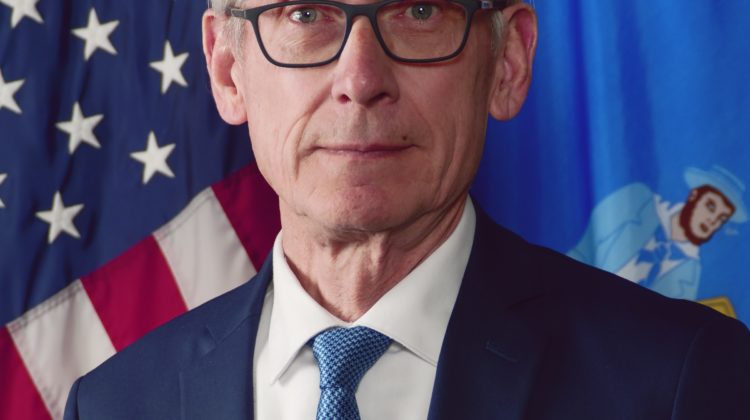
Gov. Tony Evers today, in a video message to Wisconsinites, announced he’s directing $170 million in emergency funding to the Wisconsin Department of Children and Families (DCF) to continue the Child Care Counts Stabilization Payment Program at current levels through June 2025. While the emergency stopgap measure does not meet the same funding levels Child Care Counts has received previously, it will still provide direct relief to over 4,400 child care providers across the state to help ensure child care providers can afford to keep their doors open and continue providing care for kids to keep workers in Wisconsin’s workforce.
“I hear nearly every day from small businesses, farmers and producers, school districts, and hospitals and healthcare sectors, among other key industries, who face significant challenges finding workers to fill available jobs—challenges that we know will only be exacerbated by the looming child care crisis facing our state,” said Gov. Evers. “So, it’s unconscionable that, even as Wisconsin has the highest surplus in state history, Republicans won’t pass my comprehensive workforce plan to address our state’s generational workforce challenges and prevent the collapse of our state’s child care industry.
“At the end of the day, I promised I’d do everything I could to stabilize our child care industry, support kids and working families, and reduce barriers to work to ensure our workforce can meet the needs of the 21st Century,” Gov. Evers continued. “While I’m keeping my promise today, I also want to be clear: while I am hopeful this investment will stave off an urgent collapse of our state’s child care industry, this stopgap measure isn’t a permanent solution to the looming child care crisis facing our state. We have billions of dollars readily available to make real, meaningful investments to finally address the pressing issues facing our state. It’s time for Republicans to get serious about solving problems and join us in doing the right thing for our kids and families, our workforce, and our state.”
The governor’s emergency funding directive comes after Republican legislators have spent months delaying action on Gov. Evers’ comprehensive workforce plan to address the state’s generational workforce challenges, including ongoing state investments to prevent the child care industry’s collapse, expand paid family leave, bolster high-need workforce sectors, and provide substantial support for higher education to help train, retain, and recruit workers. On Friday, more than two months after Gov. Evers first introduced his comprehensive workforce plan and after hosting a public hearing in which child care professionals repeatedly urged the Wisconsin State Legislature to make ongoing investments in the Child Care Counts program, Republicans introduced an amendment to the governor’s plan that provides no new, direct investments in child care statewide to stabilize the industry, prevent its imminent collapse, or immediately help working families afford the rising costs of child care.
Republicans’ failure to provide any additional support to child care providers statewide also comes despite having ample state resources readily available: Gov. Evers and the Wisconsin Department of Administration announced earlier this morning that the state of Wisconsin ended the fiscal year with a record-high positive balance of more than $7 billion in state coffers and that the state maintained its ‘rainy day fund’ at a record-high $1.8 billion.
Funding for the Child Care Counts program is set to expire in January 2024 under federal allocations. According to a report from The Century Foundation, absent continued investments in the Child Care Counts program in Wisconsin, 2,110 child care programs are projected to close, resulting in over 87,000 children without child care and the loss of over 4,880 child care jobs. Additionally, the lack of access to child care could potentially cause about half a billion dollars in economic impacts across the state.
“The Child Care Counts program has allowed us to keep our early care and education industry afloat so it can continue to serve working families and build our future generations,”said DCF Secretary Emilie Amundson. “This program extension will allow us to continue supporting the industry while we work with partners across all levels and sectors to explore opportunities for long-term sustainability and future innovations in the industry.”
Since the Child Care Counts program’s inception in 2020, more than $650 million has gone directly to child care providers to increase wages, provide benefits, expand access to care, and more. The program has helped more than 4,440 child care providers keep their doors open, ensuring the employment of 22,000 child care professionals and allowing providers to continue care for more than 113,000 kids.
Gov. Evers has made it a priority to address Wisconsin’s workforce challenges, including by investing in efforts that support affordable, accessible child care, like the Child Care Counts program. In his 2023-25 biennial budget proposal, Gov. Evers proposed making the Child Care Counts program permanent with a more than $340 million investment to continue supporting Wisconsin’s early care and education community, as well as the working families who depend on this care to get to work and put food on their tables. Unfortunately, despite the state’s historic surplus at that time, Republicans in the Legislature decided against putting any funding toward Child Care Counts, meaning the program was set to end in January 2024.
The funding directed by the governor today is possible primarily through reimbursements from the Federal Emergency Management Agency (FEMA) made for expenses Wisconsin incurred for pandemic response operations and underspending of funds previously allocated for pandemic response needs. An updated allocation chart as of June 30, 2023, for funds Wisconsin received under the American Rescue Plan Act is available here.
Child care providers who are currently receiving Child Care Counts payments and those who are interested in applying for the program are encouraged to sign up for email notifications to receive important program updates, including application and spending deadlines.
